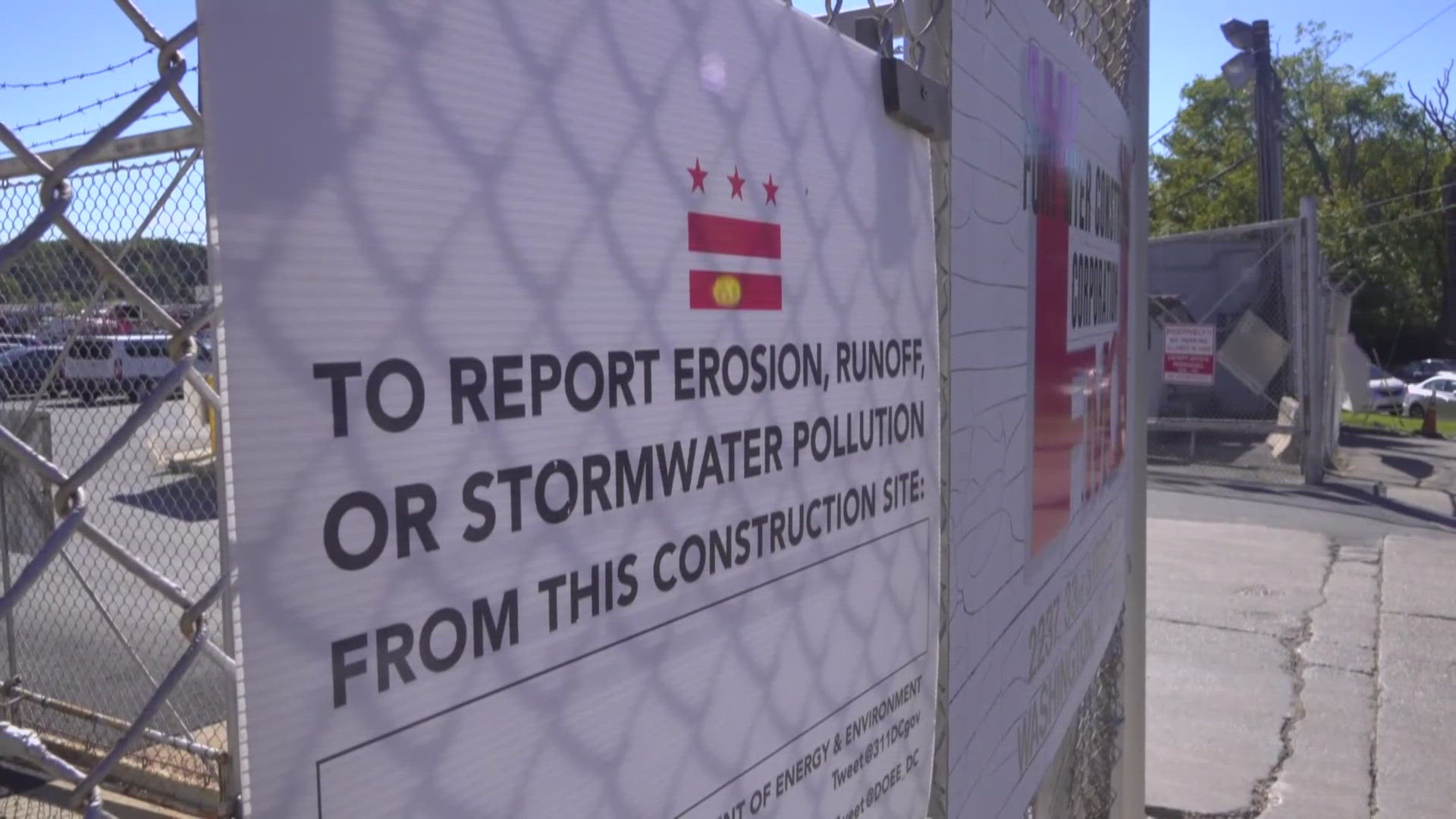WASHINGTON — One of the DMV’s largest road paving and infrastructure construction companies is being sued for illegally polluting D.C.’s stormwater system and repeatedly defying orders to stop for nearly nine years, Attorney General Brian Schwalb announced Thursday.
The District is suing Fort Myer Construction Company for violating the Water Pollution Control Act. According to a press release, the company has been repeatedly allowing petroleum-contaminated runoff to discharge into D.C.’s stormwater sewer from its storage and maintenance yard in Ward 5 since at least 2015.
"In total, DOEE (DC Department of Energy and Environment) found at least 20 unpermitted, illegal pollutant facility discharges of greywater and petroleum into the District’s stormwater system from 2015 to present," the complaint says.
The stormwater sewer empties into waterways around the District, including the Springhouse Run stream through National Arboretum into the Anacostia River. The complaint targets Fort Myer's headquarters and equipment yard on 33rd Street NE, where the company stores materials and maintains a large fleet of construction vehicles.
"They're deliberately dumping the stuff," Anacostia Riverkeeper Trey Sherard concluded after reading the DC Attorney General's complaint.
In one incident, inspectors found an “illegal bypass pipe” that allows contamination into the storm system.
Fort Myer did not have a permit to discharge under the federal Environmental Protection Agency’s Multi-Sector General Permit program. According to a press release, D.C.’s Department of Energy and the Environment inspected the Fort Myer facility multiple times over the following eight years, repeatedly giving the company notices of infractions, warnings and directive orders to apply for the correct permits.
But the company did not apply for those permits, the Office of the Attorney General said, and continued to leak pollutants into D.C.’s waterways.
“For years, Fort Myer Construction threatened District residents’ health and safety by polluting our waterways in blatant violation of environmental laws,” Schwalb said in a press release. “The company ignored repeated orders from D.C. agencies to clean up its facility and obtain proper permits, choosing instead to put its profits over the protection of DC’s critical natural resources. My office will continue to ensure that all businesses play by the rules, and that all Washingtonians have access to clean water.”
At the site Thursday, filters designed to catch pollution could be seen useless and shredded near a storm drain. The water flows into a Springhouse Run which flows to a pond at the National Arboretum. Observers could see the water fouled by litter and an oily sheen.
Sherard said he is grateful for the legal action but questions why D.C.'s government continues to do business with Fort Myer.
"I'm really angry with Fort Myer Construction to be willfully - not just accidentally - but to find out you were doing wrong almost a decade ago, and receive these complaints, and be told to fix it, and then to refuse to fix it, and then to keep refusing to fix it, and then to finally add your own bypass to get around the fix is just egregious," Sherard said. "The city and everybody that lives in it is investing billions of dollars in making this river better. A private company is profiting a little more by egregiously flouting and refusing to follow pretty basic environmental regulations."
The District is seeking financial penalties for the company's repeated violations of the Water Pollution Control Act. The company could be liable for $50,000 in penalties for each violation and up to $250,000 per violations if a court determines they are willful acts, according to Will Stephens, the Assistant Deputy DC Attorney General overseeing environmental investigations.
"Our complaint identifies at least 25 different violations and acts, so the penalties could could be quite large," Stephens said.
A representative of Fort Myer said the company will not comment on the accusations.

